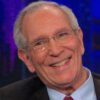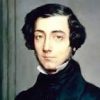Unfortunately, our own colonial history also provided ample reasons for people to be afraid to vest too much power in the national government. There had been bills of attainder here; women had been convicted and sentenced to death as “witches”; Quakers, Baptists, and various Protestant sects had been persecuted from time to time. Roger Williams left Massachusetts to breathe the free air of new Rhode Island. Catholics were barred from holding office in many places. Test oaths were required in some of the colonies to bar any but “Christians” from holding office. In New England Quakers suffered death for their faith. Baptists were sent to jail in Virginia for preaching, which caused Madison, while a very young man, to deplore what he called that “diabolical hell-conceived principle of persecution.”
Hugo Black (1886-1971) American politician and jurist, US Supreme Court Justice (1937-71)
James Madison Lecture, NYU School of Law (1960-02-17)
(Source)
The inaugural Madison lecture. Reprinted as "The Bill of Rights," NYU Law Review, Vol. 35 (Apr 1960). The Madison reference is in a letter to William Bradford (24 Jan 1774).
Quotations about:
political power
Note not all quotations have been tagged, so Search may find additional quotes on this topic.
When citizens are relatively equal, politics has tended to be fairly democratic. When a few individuals hold enormous amounts of wealth, democracy suffers. The reason for this pattern is simple. Through campaign contributions, lobbying, influence over public discourse, and other means, wealth can be translated into political power. When wealth is highly concentrated — that is, when a few individuals have enormous amounts of money — political power tends to be highly concentrated, too. The wealthy few tend to rule. Average citizens lose political power. Democracy declines.
Benjamin I. Page (b. 1940) American political scientist, academic, researcher
Democracy in America?: What Has Gone Wrong and What We Can Do About It, Part 1, ch. 2 (2017) [with Martin Gilens]
(Source)
The national unity of a free people depends upon a sufficiently even balance of political power to make it impracticable for the administration to be arbitrary and for the opposition to be revolutionary and irreconcilable. Where that balance no longer exists, democracy perishes. For unless all the citizens of a state are forced by circumstances to compromise, unless they feel that they can affect policy but that no one can wholly dominate it, unless by habit and necessity they have to give and take, freedom cannot be maintained.
Walter Lippmann (1889-1974) American journalist and author
“The Indispensable Opposition,” The Atlantic Monthly (Aug 1939)
(Source)
Whatever the laws may provide, however lofty may be their sentiments, a man without a vote is a man without protection; he is virtually helpless.
Lyndon B. Johnson (1908-1973) American politician, educator, US President (1963-69)
Comments, U.S. Senate (1960-03-10)
(Source)
As Senate Majority Leader.
Democracy does not give the people the most skillful government, but it produces what the ablest governments are frequently unable to create: namely, an all-pervading and restless activity, a superabundant force, and an energy which is inseparable from it and which may, however unfavorable circumstances may be, produce wonders.





